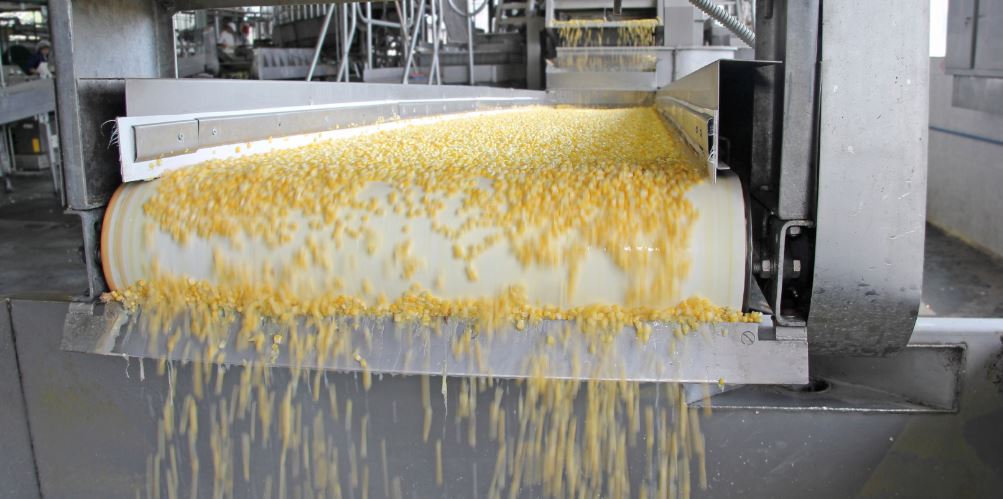Introduction
In today's quickly evolving food sector, companies are seeking sustainable services to satisfy the growing need for high quality food while reducing their ecological impact. Contract food manufacturing has actually become a sensible choice for business aiming to outsource their production requires while keeping control over product growth as well as quality control. This short article discovers the principle of contract food manufacturing in Australia and its function in promoting sustainability within the food industry.


The Increase of Contract Food Manufacturing in Australia
Understanding Contract Food Manufacturing
Contract food manufacturing is a strategic partnership in between a brand name owner and an agreement maker, where the last creates goods in support of the previous. This setup allows brand name proprietors to focus on advertising and marketing, item growth, as well as distribution while Co-packaging services leveraging the competence and sources of specialized contract manufacturers.
Benefits of Contract Food Manufacturing
Cost Effectiveness: Contract food manufacturing removes the requirement for considerable capital investments in framework, devices, and manpower. This cost-saving measure enables brand names to assign their resources towards other important locations of business growth. Scalability: As demand for a specific item varies, contract producers can promptly change manufacturing levels to accommodate market needs. This versatility makes certain that brands can meet customer need without excess inventory or wastage. Expertise as well as Development: Contract suppliers commonly have extensive expertise and experience in certain food groups or processes. By working together with these professionals, brand names can take advantage of their creative thinking as well as harness innovative services for product development and also improvement. Quality Guarantee: With stringent quality control measures in position, contract makers follow market standards and also governing demands. This dedication to quality makes sure that brands provide risk-free as well as premium products to consumers consistently. Supply Chain Administration: Contract food manufacturing enhances the supply chain by settling manufacturing, packaging, labeling, and circulation under one roofing. This integrated approach reduces logistical complexities and also improves overall functional efficiency.The Environmental Impact of Contract Food Manufacturing
Reducing Carbon Footprint
Contract food manufacturing offers opportunities to minimize the ecological influence of food manufacturing through various ways:
Efficient Source Use: Contract manufacturers enhance source consumption by applying energy-saving methods, reducing water use, and also lowering waste generation. These sustainable procedures add to a reduced carbon impact throughout the whole manufacturing process. Locally Sourced Active ingredients: By sourcing active ingredients from neighborhood distributors, agreement makers reduce transport distances as well as linked exhausts. This method sustains regional economies while promoting sustainability within the supply chain. Eco-Friendly Packaging: Contract food producers highlight making use of environment-friendly product packaging products, such as naturally degradable or recyclable alternatives. This commitment to sustainable product packaging reduces waste as well as promotes responsible consumption.Embracing Sustainable Energy
Contract food manufacturing facilities in Australia are significantly embracing renewable energy resources to power their operations. Solar panels, wind generators, as well as other tidy power remedies help in reducing dependence on fossil fuels as well as contribute to a greener future for the industry.
Addressing Sustainability Difficulties in Agreement Food Manufacturing
Waste Administration and also Reusing Initiatives
Contract food makers focus on waste administration via thorough recycling programs and waste decrease approaches. By applying effective waste partition systems, companies can divert substantial amounts of waste from garbage dumps and promote a round economy.

Water Preservation Measures
Water deficiency is an international worry, and also contract food suppliers play their part in resolving this challenge. Firms buy water-saving modern technologies, such as sophisticated purification systems and also water reuse campaigns, to decrease their freshwater consumption.
Collaboration with Lasting Suppliers
Contract food suppliers actively look for collaborations with suppliers committed to lasting techniques. By focusing on ecologically aware providers, these business ensure that their whole supply chain aligns with sustainability goals.
FAQs
What is contract food manufacturing? Contract food manufacturing refers to the outsourcing of food production to specialized producers that generate goods in behalf of brand owners.
How can contract food manufacturing advantage businesses? Contract food manufacturing uses cost efficiency, scalability, proficiency, as well as quality assurance to brand names aiming to concentrate on advertising and marketing as well as distribution.
How does contract food manufacturing advertise sustainability? By maximizing source use, embracing renewable energy, as well as applying waste administration and reusing efforts, contract food manufacturing decreases its ecological impact.
What are some sustainable packaging options in contract food manufacturing? Green packaging materials such as naturally degradable or recyclable choices are typically used in contract food manufacturing to lower waste.
How do contract food makers preserve water? Contract food makers buy water-saving modern technologies and also carry out water reuse efforts to decrease their freshwater consumption.
What duty does cooperation with lasting vendors play in contract food manufacturing? By partnering with eco conscious providers, agreement food producers make sure that their whole supply chain aligns with sustainability goals.
Conclusion
Contract food production presents a lasting service for companies seeking to satisfy the growing demand for high quality food products while reducing their environmental impact. By leveraging the experience of specialized makers as well as taking on green methods, brands can add to a greener future for the Australian food sector. Welcoming sustainability not only benefits the environment however additionally boosts brand name track record as well as customer rely on a significantly aware market.